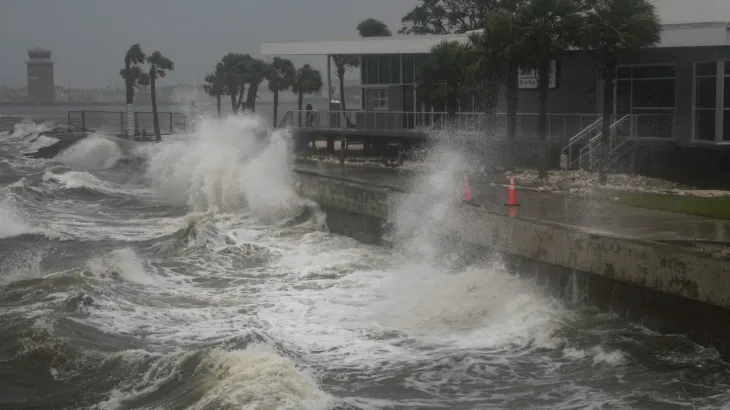Tornadoes, floods as Hurricane Milton carves path of destruction in Florida

Hurricane Milton has left a trail of destruction in Florida as it whipped up tornadoes and brought torrential rains and raging winds that destroyed homes and knocked out power for millions of people in the US state.
While the National Hurricane Center said on Thursday that the storm, which made landfall on the state’s western coast hours earlier, had weakened to a Category 1 hurricane, it was still hurtling through Florida with wind speeds of 150 km/h (93mph).
Milton made landfall at about 8:30pm (00:30 GMT) on Wednesday as a Category 3 hurricane, with maximum sustained winds of 195km/h (121mph) near Siesta Key, Florida.
The storm is expected to maintain hurricane strength as it crosses the Florida peninsula and emerges into the Atlantic on Thursday, forecasters said, despite it running out of steam.
At least 19 tornadoes ripped across the southern part of Florida, hundreds of miles from the centre of the storm, as it neared land.
The number of casualties is still unclear. St Lucie County Sheriff Keith Pearson told local media multiple people were killed in a senior community called Spanish Lakes Country Club, located near the South Florida city of Fort Pierce.
The sheriff could not confirm the number of deaths and injuries but said emergency responders were still searching damaged homes.
Reporting from Orlando, Florida, Al Jazeera’s Heidi Zhou-Castro said there were people who chose to ride the storm out and shelter in place.
“We will not know their fate until the light of day when the storm passes,” she said.
Florida Governor Ron DeSantis warned in a Wednesday evening news briefing that the hurricane had arrived on the state’s coastline and that it was no longer possible to evacuate safely.
The National Oceanic and Atmospheric Administration credited the La Nina weather pattern and warmer-than-average water temperatures for an above-average Atlantic hurricane season. The overall number of hurricanes has already surpassed last year’s total.
Oliver Carpenter, director of Environmental Risk, Resilience, a University of Cambridge Centre for Risk Studies spinout, told Al Jazeera that climate change is affecting hurricane activity in the North Atlantic.
“[It is] supercharging them to be more destructive and increasing the risk of major damage. Tropical cyclones occur naturally, but climate change is fueling warmer ocean and air temperatures which is driving more intense, larger, and longer-lasting storms,” he said.
While Milton is expected to do the most damage in western Florida, the neighbouring state of Georgia, which is reeling from last month’s Hurricane Helene, is also bracing for impact.










